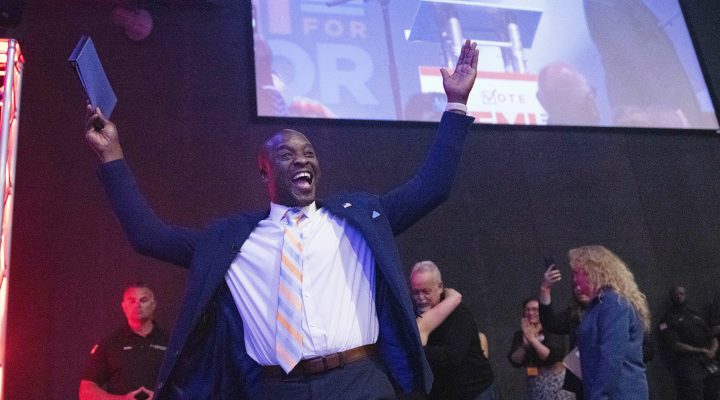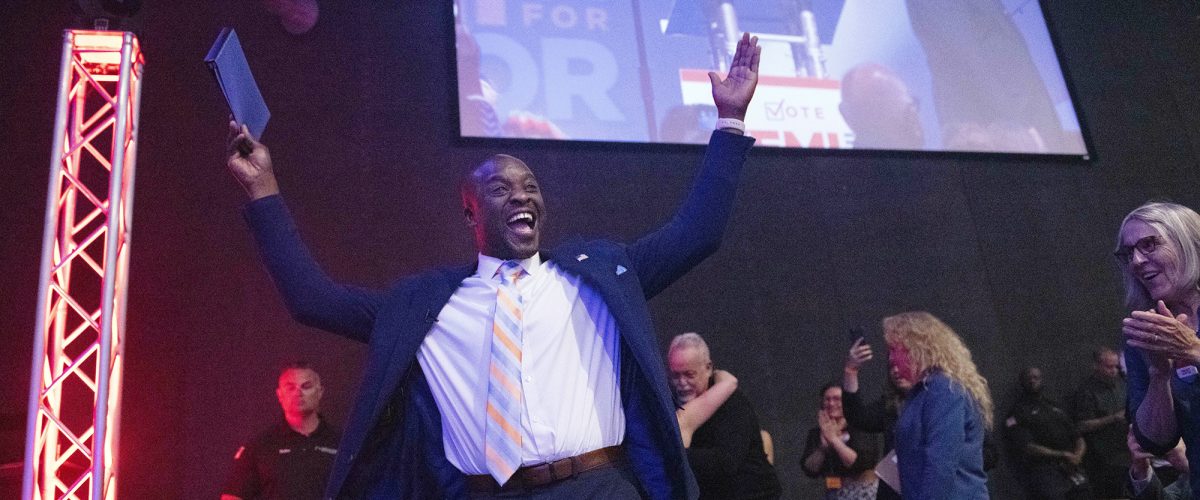Yemi Mobolade, a Nigerian immigrant, entrepreneur and Christian community leader, made history in May, becoming the first Black man and first non-Republican to be elected mayor of Colorado Springs, Colorado’s second largest city, in more than four decades.
A political newcomer who is politically independent, Mobolade got 57.6% of the vote in a runoff election that observers called “a seismic shift” in this formerly solid-red conservative stronghold that is home to dozens of international evangelical ministries and several military installations.
He isn’t affiliated with a political party and successfully won nearly all Democrats, most unaffiliated voters, and a surprising number of white evangelical Republicans who previously voted twice for Donald Trump for president.
But in a recent interview, Mayor Mobolade said he seeks the common good for all citizens, not just his own faith tribe.
“I’m the mayor for all people,” he said, describing a political philosophy derived from Jesus’ two “greatest” commandments: “Love the Lord your God with all your heart and with all your soul and with all your mind,” and “Love your neighbor as yourself” (Matthew 22:37-40).
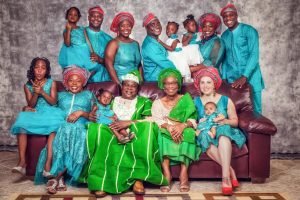
The extended Mobolade family
The God Mobolade worships created everyone in God’s own divine image, loves everyone and commands followers to treat everyone with the love and respect due them.
He says his faith compels him to be inclusive, not exclusive. And he says he wants his administration to replace “cultural hospitality” (which means “hanging out with people who think as I do”) with something he calls “biblical hospitality.”
“This means we should be a lover of the other, a lover of the stranger, a lover of people who don’t think like us,” he said.
He’s already achieving these goals. His administration is working with three of the candidates who ran against him. He has launched a community listening tour to invite citizens to the table so they can be heard. And he appointed a former Christian pastor to serve as senior adviser on community affairs and liaison to local faith-based organizations, including local Mormon and Muslim communities.
A once ‘angry’ and ‘lost’ Nigerian teen
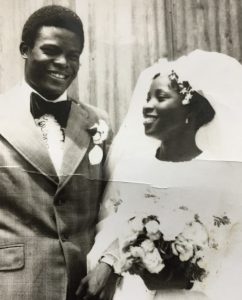
Mobolade’s parents
Mobolade’s parents grew up in rural Nigeria, where polygamy and idol worship were customary. They converted to Christianity as young adults, married and pursued the schooling that would lead to his father’s career in finance, his mother’s work in education, and the family’s entry into the country’s small middle class.
His parents also served churches in the International Church of the Foursquare Gospel, a Pentecostal denomination founded a century ago in the U.S. and that reached Nigeria in 1955.
Their commitment to their faith was evident when they gave names to their second son, born in 1979. In a sacred naming ceremony, they called their second son Blessing Adeyemi — prioritizing a Christian name over a Yoruba tribal name that means “the crown fits me.”
His parents also modeled a lifestyle that balanced professional obligations and spiritual commitments, evangelism and entrepreneurialism. He calls this bivocational approach “co-vocational” to indicate that work and ministry aren’t competing callings but should be integrated.
By age 17, though, he was “a lost and angry young man” who concluded Nigeria’s poverty and unemployment couldn’t provide the opportunities he sought.
Coming to America
Mobolade’s faith flourished as a business student at Bethel University in Indiana, a private Christian school that mandated attendance at three weekly chapel services and required students to take three Bible courses.
He grew winded and fell behind, leading a police officer to stop him and ask why he was “chasing” the white student.
He dove into campus life and soon discovered he had the gift of leading worship among the largely white student body. There were incidents of racism and one brush with the law for “jogging while Black.” When he and a white student went out for a run, he grew winded and fell behind, leading a police officer to stop him and ask why he was “chasing” the white student.
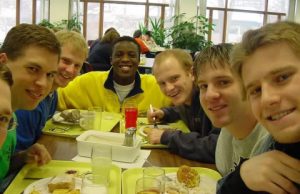
Mobolade as a student at Bethel College
He met his wife, Abbey, in Indiana and earned master’s degrees in management and leadership from Indiana Wesleyan University in Marion, Ind. He then studied at A.W. Tozer Theological Seminary in California, where church history opened his eyes to the many ways Christ’s followers have carried out God’s work outside the walls of the church through service, education, charity, hospitals, the arts and sciences, government and more.
Amid crises of faith, vocation and relationships, he says God gave him a vision for his future: “I would be going to help lead change and direct people’s hearts toward the things of God.”
From minister to mayor
Tozer is affiliated with the Christian and Missionary Alliance denomination, which was formerly based in Colorado Springs. C&MA hired Mobolade to start a new church in the city and do other work with the denomination.
His 13 years in the city have seen his “co-vocational” approach grow wider: church planter, worship leader, restauranteur (Wild Goose Meeting House and Good Neighbors Meeting House), nonprofit founder and leader (COSI LoveYou and CityServe Day), community mobilizer, and small business development executive.
Mayor Mobolade opposes efforts of those on both the left and right to allow political passions to hijack faith: on the left through liberation theology, and on the right through Christian nationalism, a doctrine promoted by Colorado Springs-based ministries including Focus on the Family, Summit Ministries and the Colson Center.
“That’s the ‘Christ of culture’ approach,” he says, citing H. Richard Niebuhr’s classic Christ and Culture, which described how people accommodate their faith to cultural norms.
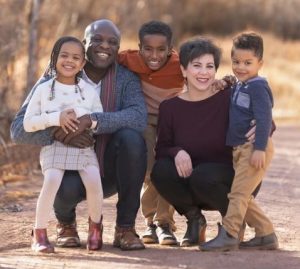
Mobolade and family today
Nor does he find any biblical mandate for Mountains Dominionism, a politicized approach to faith promoted by nearby health and wealth preacher and activist Andrew Wommack, which claims Christians should rule the world through government, education, the arts and other “mountains” of culture.
Being the mayor for all people subjects Mobolade to criticism from multiple angles.
His fellow evangelicals criticized him for speaking at Pikes Peak Pride Fest in June, where he read the names of five people killed in last November’s attack on Club Q, an LGBTQ haven.
Others criticized him for speaking at a recent “Fire and Glory” revival meeting in July where he was surrounded by Dominionists and Christian nationalists including Lance Wallnau, Bill Federer and Mario Murillo.
Mayor Mobolade believes both gays and God-and-government advocates are his constituents, and he seeks to serve them all.
“I’m as apolitical as they come,” he said. And that’s part of his appeal to voters who’ve grown increasingly worried about the division and demonization of contemporary politics.
Related articles:
Colorado Springs elects a Nigerian immigrant — and political independent — as mayor
Colorado Springs clergy speak out against religious hate speech that leads to violence
It’s a short distance from your Thanksgiving table jokes to queer people being shot dead | Opinion by Amber Wylde

